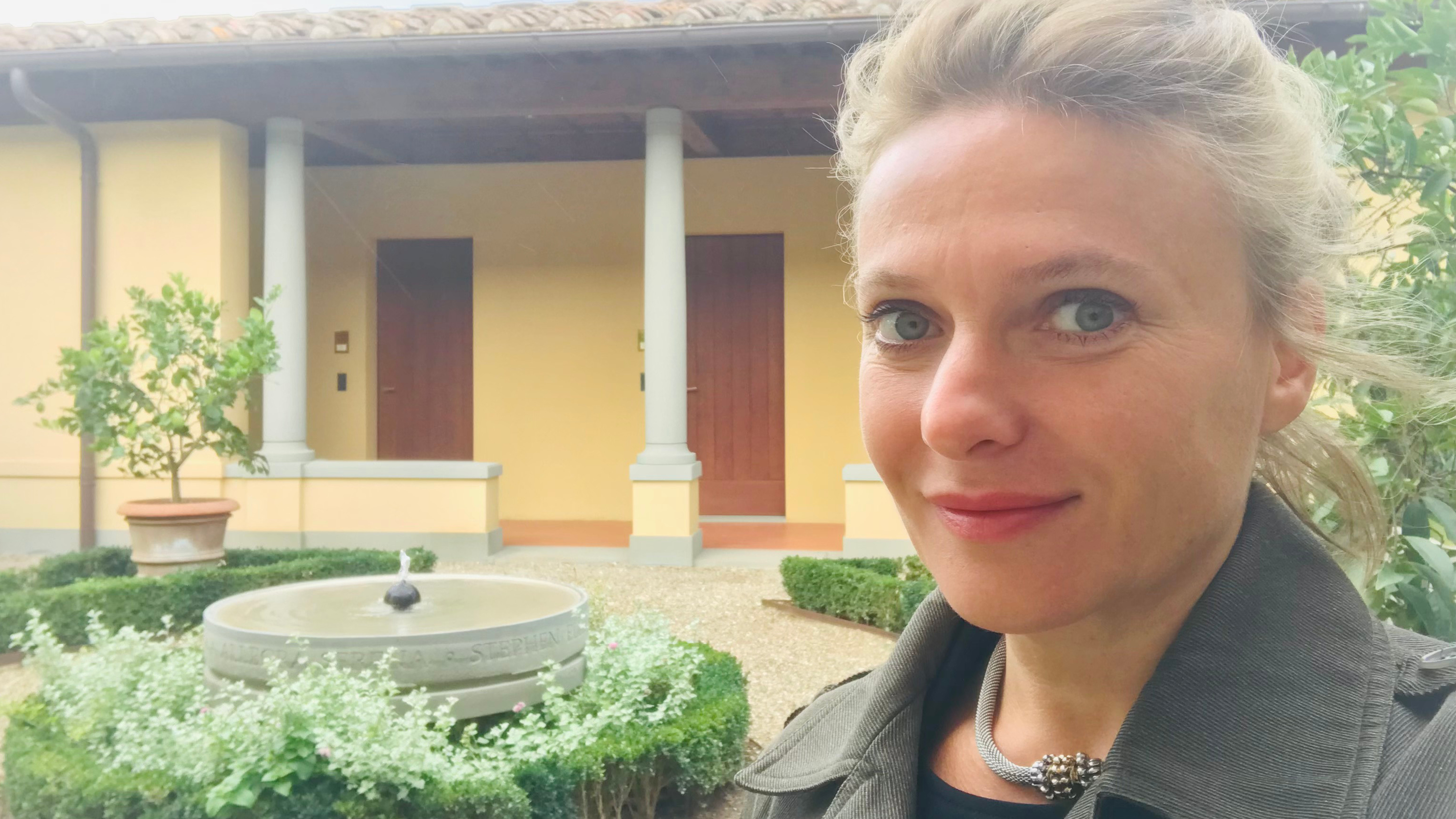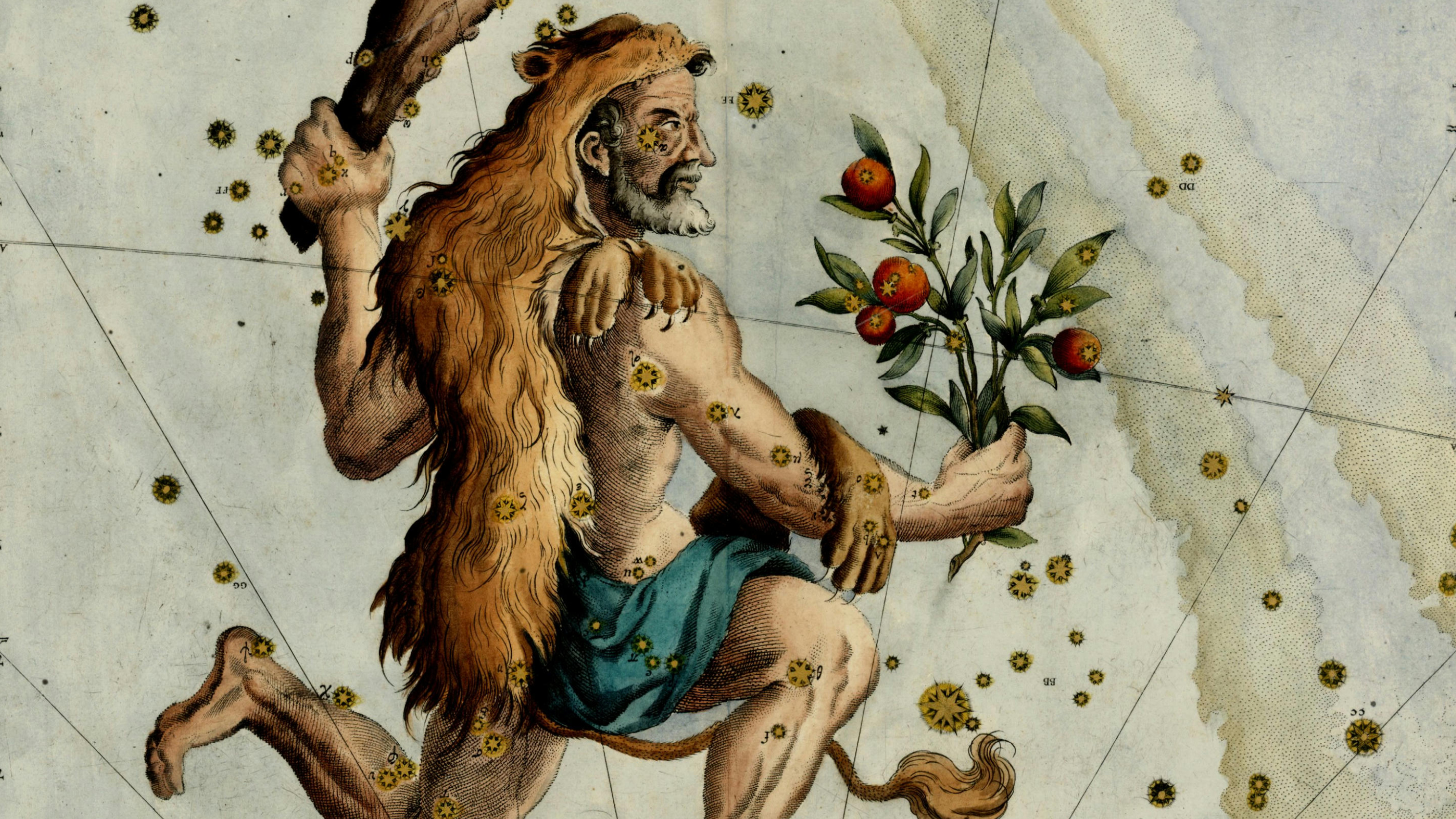Dr. Katharina Piechocki, Assistant Professor of French who specializes in 17th-century French and Italian Literature, shares about her latest book project and research fellowship in Florence, Italy.


Dr. Katharina Piechocki at Villa I Tatti in Florence, Italy for a research fellowship.
Procreative Poetics
“The use of Hercules—a figure frequently mobilized in early librettos to allegorically represent ruling monarchs—highlights profound anxieties about dynastic continuity, political stability, and gender identity.”
My goal during my research fellowship at Villa I Tatti in Florence is to complete my second book, Hercules: Procreative Poetics and the Origins of the Opera Libretto, on the origin of the opera libretto as a poetic genre in 17-century France and Italy.
The libretto has usually been considered to be a “minor” genre, of scarce poetic value, and has been studied predominantly from a musicological rather than literary or cultural perspective. But opera was a courtly genre before it became accessible to a wider (paying) public, and was thus intimately linked to questions of dynastic politics, procreation, and gender.
The use of Hercules—a figure frequently mobilized in early librettos to allegorically represent ruling monarchs—highlights what Ernst Kantorowicz has called the body natural: in this case, profound anxieties about dynastic continuity, political stability, and gender identity.
In creating Hercules-themed operas, librettists and composers alike aimed at bringing together the dual strand of poetic production and sexual reproduction, often with surprising agendas. Operas could perpetuate or undermine common ideas about procreation and the woman’s alleged responsibility for conjugal sterility; thematize the possible frailty of a sovereign’s body (central for monarchic continuity); or imagine alternative and, at times, homoerotic forms of non-procreative desire beyond dynastically dictated sexual reproduction. Hence my coinage of “procreative poetics.”
Early modern physicians considered passions and desire (on the part of both the man and the woman) to be ingredients necessary for procreation and a guarantee for successful conception; so too, I argue, librettists (often trained as physicians) mobilized affects and passions as powerful therapeutic measures to counterbalance, through an expert dosage of potent poetics, anxieties about princely impotence and monarchic sterility.
My book project investigates a dynamic conception of birth, generation, and creation in the poetics of 17th-century opera. The intimate bond between the fluidity of the human body and the malleability of the new genre of the libretto is what drives my elaboration of procreative poetics.
Impact


Hercules (1603) by Johann Bayer.
“My research explores the potential of poetics to subvert and destabilize, or produce and support, political hierarchies and power structures.”
My sense is that my book project addresses and, at the same time, reframes questions that drive the Arts and Humanities today: it asks how new art forms emerge and how they enter into a dialogue; it inquires into the relationship between arts and institution; it explores the potential of poetics to subvert and destabilize, or produce and support, political hierarchies and power structures; and it explores the question of gender and whether art (and poetics) is gendered.
Given that this is such an interdisciplinary project, I hope that this book will connect and be meaningful to disciplines beyond the Romance Studies. I’m thinking, in particular, of the fields of theatre and performance studies, opera studies, gender studies, early modern studies, and comparative literature. I also hope that “Hercules” will open up to 21st-century theoretical discourses, including queer studies, gender studies, and the recent “affective turn.”
Villa I Tatti


Garden at Villa I Tatti in Florence, Italy where The Harvard Center for Italian Renaissance Studies is located. | Attribution: I, Sailko, CC BY-SA 3.0 <https://creativecommons.org/licenses/by-sa/3.0>, via Wikimedia Commons.
“It’s difficult to think of a more congenial place than the Villa I Tatti, located just outside of Florence, to conduct my research.”
My office is only a few kilometers away from the Palazzo Pitti, the place where the first opera, Euridice, was performed. And one of my Hercules operas, Ercole in Tebe, was performed in Florence in 1661 for the wedding of Cosimo III de’ Medici and Marguerite Louise, Princess of Orléans.
What is more, I Tatti has a mind-boggling library focusing on Renaissance and early modern studies, with a particular emphasis on music. And I’m part of a group of fellows who all work on Renaissance-related topics. It’s a fabulous and very generous community: I’ve already benefitted quite a lot from my fellow fellows’ knowledge and their thought-provoking comments concerning my research, be it about the Renaissance articulations of the myth of Hercules or the staging of Hercules in 17th-century Italian ballets.
I feel very lucky to be here: it will allow me, this is my hope, to finish my book manuscript by next June.


